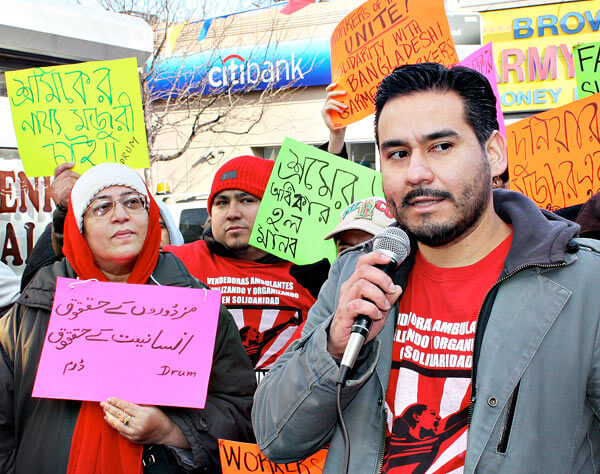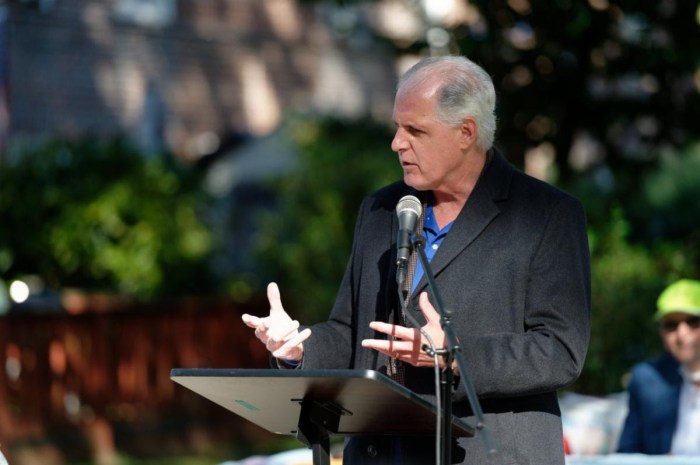By Rebecca Henely
Mega-retailer Walmart has released a “zero tolerance” policy after a factory fire that killed more than 100 people in Bangladesh.
The fire at the Tazreen Fashion factory, located in Dhaka, Bangladesh, has been of great concern to Jackson Heights officials and residents. U.S. Rep. Joseph Crowley (D-Jackson Heights) sent a letter to U.S. Trade Representative Ambassador Ron Kirk in December requesting a review of the country’s labor situation.
The fire also inspired a protest in Jackson Heights earlier that month against Walmart, which had a connection to the factory through a supplier that subcontracted with them.
Walmart’s new policy dictates the company will no longer allow its suppliers to subcontract factory work without authorization, will require facilities to have a good ethical sourcing audit rating before they become part of a supplier’s network, will strengthen fire safety standards in all countries with special attention to Bangladesh factories, and will require a Walmart representative on all sites to ensure the facility is meeting the company’s ethical sourcing standards.
Crowley, who began the Bangladesh caucus in 2000 and has a significant Bangladeshi population in his district, asked that Kirk’s office complete a review of the country’s compliance with the Generalized System of Preference’s labor eligibility requirements. The Generalized System of Preferences is a U.S. program that exempts countries from the general rules of the World Trade Organization. The preferential status can be taken away if the country does not progress on labor rights.
A total of 11 other congressional members signed Crowley’s letter.
“We ask that they finish the study so we can help Bangladesh move forward,” Crowley said.
The ambassador’s office did not respond to a request for comment.
Crowley said the letter to Kirk was in part a response to the Tazreen fire. The factory was destroyed Nov. 24 in a blaze possibly started by an electrical short circuit, which burned into the next day and killed at least 117 workers who were trapped in the building or tried to jump from the upper floors and later died at the hospital.
But the congressman said other factors have raised concerns about Bangladesh’s labor record, such as the unsolved April 2012 murder of Bangladeshi labor organizer Aminul Islam, the country’s failure to register labor unions, criminal charges the country levies against labor leaders and complaints about fire and safety in factories in the country.
“It probably has been the most moving event, but not the only,” Crowley said of the Tazreen fire.
Bangladesh is the world’s second-largest exporter of clothing, ranking only behind China.
Crowley said he has visited the country and, while not all factories in Bangladesh are the same, some are better than others. He said he does not want to see the country excluded from the Generalized System of Preferences but says the U.S. trade representative’s office must finish its findings on Bangladesh.
“If there’s a silver lining in here, it’s I hope [there is] a greater concern for workers rights embodied in the government itself,” Crowley said.
Reach reporter Rebecca Henely by e-mail at rhenely@cnglocal.com or by phone at 718-260-4564.


































